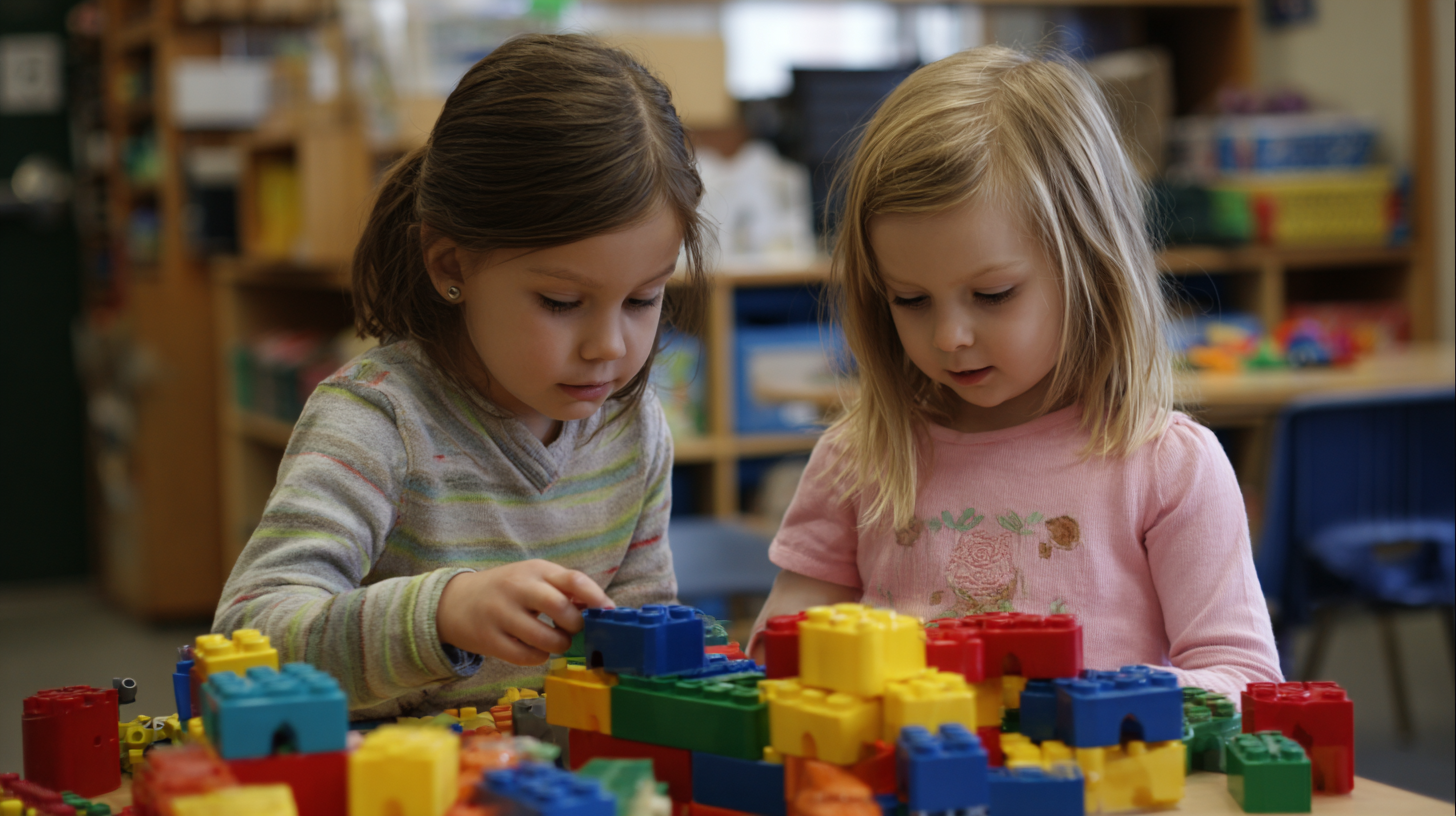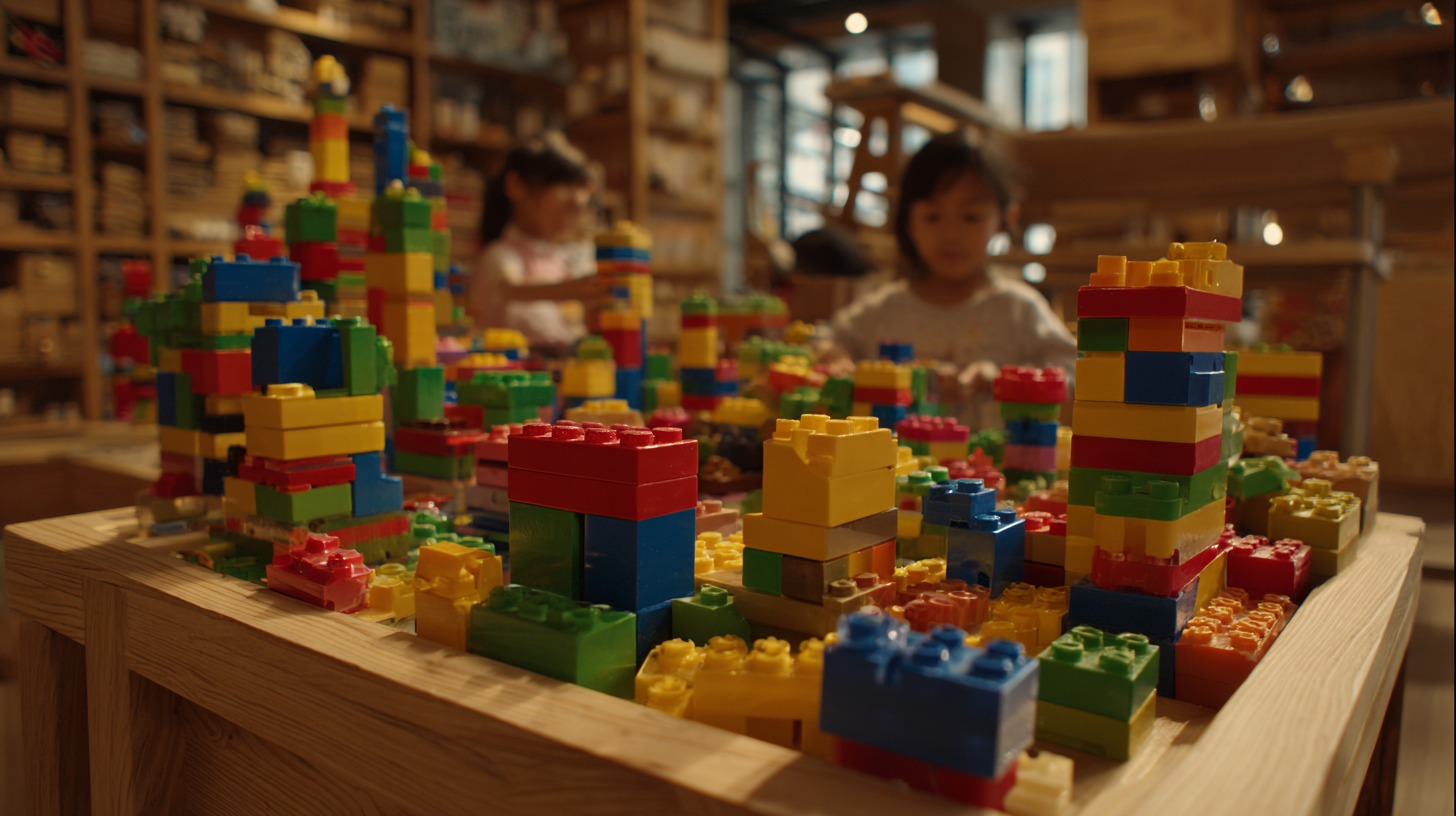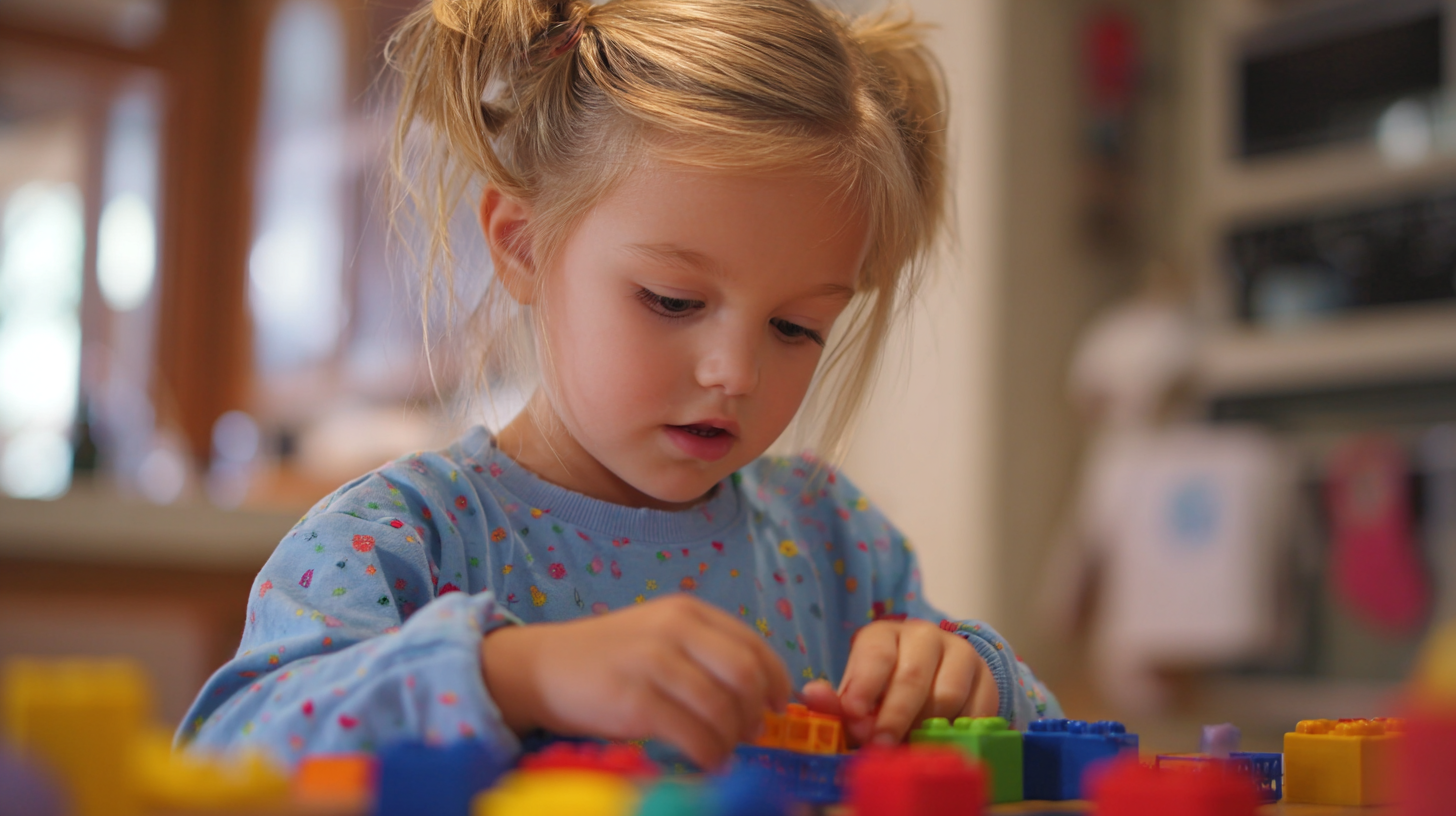In today’s rapidly evolving educational landscape, early childhood development is increasingly recognized as crucial for fostering essential skills in science, technology, engineering, and mathematics (STEM). One innovative approach to enhancing STEM learning in young children involves the use of
Building Blocks—versatile tools that stimulate creativity and critical thinking.
 Building Blocks provide children with an engaging, hands-on way to explore complex concepts, encouraging them to manipulate, construct, and visualize mathematical ideas and scientific principles. By integrating Building Blocks into early childhood curricula, educators can create rich learning environments that promote problem-solving skills and innovation. This article delves into the multitude of benefits associated with Building Blocks, illustrating how these simple yet powerful tools unlock creative potential and set the foundation for a successful STEM education path in young learners.
Building Blocks provide children with an engaging, hands-on way to explore complex concepts, encouraging them to manipulate, construct, and visualize mathematical ideas and scientific principles. By integrating Building Blocks into early childhood curricula, educators can create rich learning environments that promote problem-solving skills and innovation. This article delves into the multitude of benefits associated with Building Blocks, illustrating how these simple yet powerful tools unlock creative potential and set the foundation for a successful STEM education path in young learners.
 Building blocks play a pivotal role in enhancing cognitive skills during early childhood development. Engaging with building blocks offers children a hands-on approach to learning, encouraging them to explore concepts of shape, size, balance, and symmetry. As children manipulate these blocks, they exercise their problem-solving abilities, learning to strategize and think critically about how to achieve their desired structures. This not only boosts their spatial awareness but also fosters resilience as they experiment and refine their ideas through trial and error.
Building blocks play a pivotal role in enhancing cognitive skills during early childhood development. Engaging with building blocks offers children a hands-on approach to learning, encouraging them to explore concepts of shape, size, balance, and symmetry. As children manipulate these blocks, they exercise their problem-solving abilities, learning to strategize and think critically about how to achieve their desired structures. This not only boosts their spatial awareness but also fosters resilience as they experiment and refine their ideas through trial and error.
Furthermore, building blocks cultivate essential cognitive abilities such as creativity and logical reasoning. When children are encouraged to create their own designs, they tap into their imaginative potential, which is crucial for cognitive growth. Additionally, the process of planning and building helps to strengthen their fine motor skills and hand-eye coordination, integral components of early cognitive development. Through collaborative play with peers, children also develop social skills, enhancing their emotional intelligence as they navigate teamwork and share their thoughts. Overall, building blocks serve as a multi-dimensional tool in fostering a rich environment for cognitive advancement in young learners.
Structured play, particularly through the use of building blocks, offers significant evidence-based benefits for STEM learning in early childhood. Engaging young learners in hands-on activities, such as constructing with blocks, stimulates cognitive processes essential for developing skills in science, technology, engineering, and mathematics. Research indicates that these activities support problem-solving abilities and critical thinking, as children experiment with balance, gravity, and spatial relationships while building various structures. This kinesthetic approach not only enhances academic understanding but also nurtures creativity and innovation.
Moreover, structured play fosters collaboration and communication among peers, as children often work in groups to achieve common goals. Through shared experiences and discussions, they learn to articulate their ideas, negotiate solutions, and appreciate diverse perspectives. Such social interactions are crucial as they build emotional intelligence and interpersonal skills, which are fundamental in STEM fields. The integration of building blocks into early childhood curricula thus lays a robust foundation for lifelong learning, emphasizing that play is not merely an activity for children but a vital educational tool that cultivates essential skills for future success in STEM.
This bar chart illustrates the evidence-based benefits of STEM learning through structured play in early childhood development. The data shows the percentage improvement in various skills when children engage with building blocks as a part of their learning process.
Integrating building blocks into early childhood education curricula serves as a powerful strategy to enhance STEM learning. Research indicates that children who engage in block play develop critical spatial skills, which are foundational for success in math and science. According to the National Association for the Education of Young Children (NAEYC), children who frequently use building blocks show 30% higher performance in math-related tasks compared to those who do not. This hands-on approach not only fosters creativity but also reinforces essential concepts such as balance, shape recognition, and problem-solving.
Incorporating building blocks into STEM-focused lessons encourages collaborative play, which further enriches the learning experience. The American Academy of Pediatrics emphasizes that interactive play supports social-emotional development, while simultaneously enhancing cognitive skills. For instance, educators can design activities where children collaborate on building a structure, prompting discussions about engineering principles and allowing them to experiment with design, stability, and teamwork. These practical applications of STEM concepts in early childhood education not only make learning enjoyable but also equip children with the skills needed for future academic pursuits in these fields.
| Dimension | Description | Impact on Learning | Recommended Age Group |
|---|---|---|---|
| Fine Motor Skills | Manipulating blocks helps children develop dexterity. | Improves hand-eye coordination and grasping techniques. | 2-5 years |
| Spatial Awareness | Building structures enhances children's understanding of space. | Promotes problem-solving skills and creative thinking. | 3-6 years |
| Collaboration | Playing with blocks in groups encourages teamwork. | Fosters communication skills and social development. | 4-7 years |
| Mathematical Concepts | Building and counting blocks can introduce basic math. | Supports numerical literacy and counting skills. | 3-5 years |
| Creativity | Open-ended building encourages imaginative play. | Enhances creative expression and innovation. | 2-6 years |
Engaging young children with building blocks serves as a powerful catalyst for enhancing creativity and innovative thinking. Through the open-ended nature of block play, children are encouraged to experiment, explore, and express their ideas in tangible forms. As they manipulate various shapes and sizes, they develop crucial spatial awareness and problem-solving skills. These activities not only foster a hands-on understanding of basic engineering principles but also promote cognitive flexibility, as children learn to adapt their designs and approaches based on trial and error.
Moreover, the creative growth associated with block play is measurable through various observational and assessment methods. Researchers have identified a clear correlation between children’s engagement with building blocks and their capacity for innovative thought, as evidenced by their ability to devise novel solutions and articulate their creative processes. By providing opportunities for collaborative play, children also enhance their social skills, learning to share ideas and negotiate plans. This holistic development underscores the integral role of playful learning in early childhood education, as it lays a solid foundation for future academic and personal achievements.

Building block programs have emerged as pivotal tools in enhancing STEM education among preschoolers, as evident from recent successful case studies. For instance, the immersive activities at the Chengdu High-tech Zone during the WAFC Youth Creativity Cultivation project highlighted the significance of hands-on learning in spurring creativity. This workshop emphasized the theme of “learning by doing,” fostering an environment where children can explore and innovate using building blocks. Such interactive experiences not only capture children's imagination but also lay a solid foundation for scientific inquiry and problem-solving skills.
Similarly, the fifth technology festival held at a kindergarten in Wuxi showcased the theme "Full of Star Dreams," where children engaged in various hands-on scientific activities. This event served as a platform for young learners to unlock their potential through exploration and creativity using building blocks. The program effectively demonstrated how integrating playful, constructive learning experiences in STEM education can invigorate children's interest in science and technology, preparing them for future academic pursuits. These initiatives underline the importance of creative play in early childhood development, particularly in the contexts of STEM learning.


+86-754-86986185


David: info@yo-yo.net.cn
Susan: sales8@yo-yo.net.cn
Eunice: sales3@yo-yo.net.cn
Vincent: st88@sixtrees.cn


David: +86 13118683999
Susan: +86 13829657827
Eunice: +86 13809675407
Vincent: +86 13592830482
